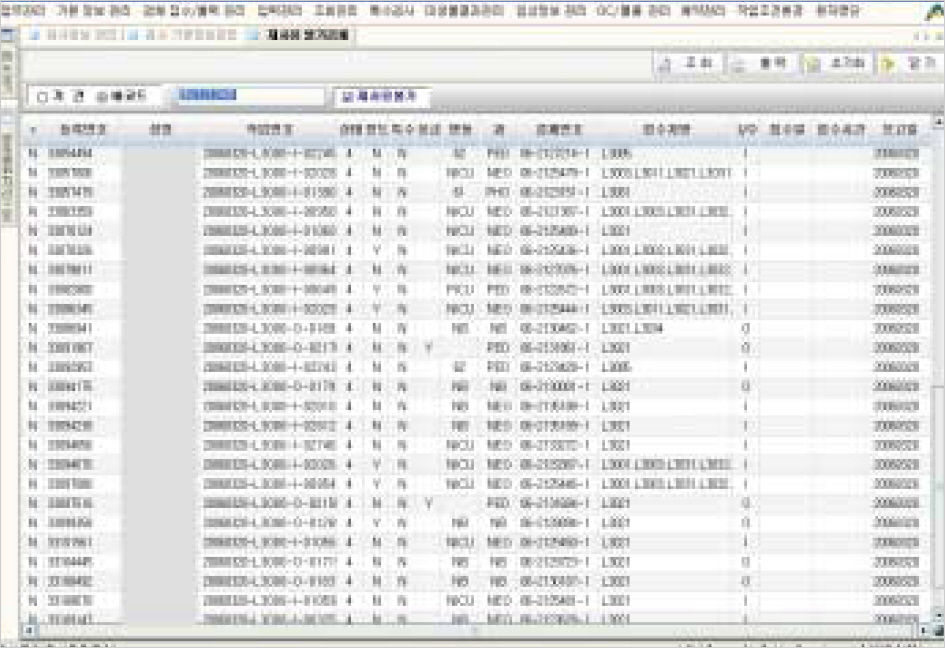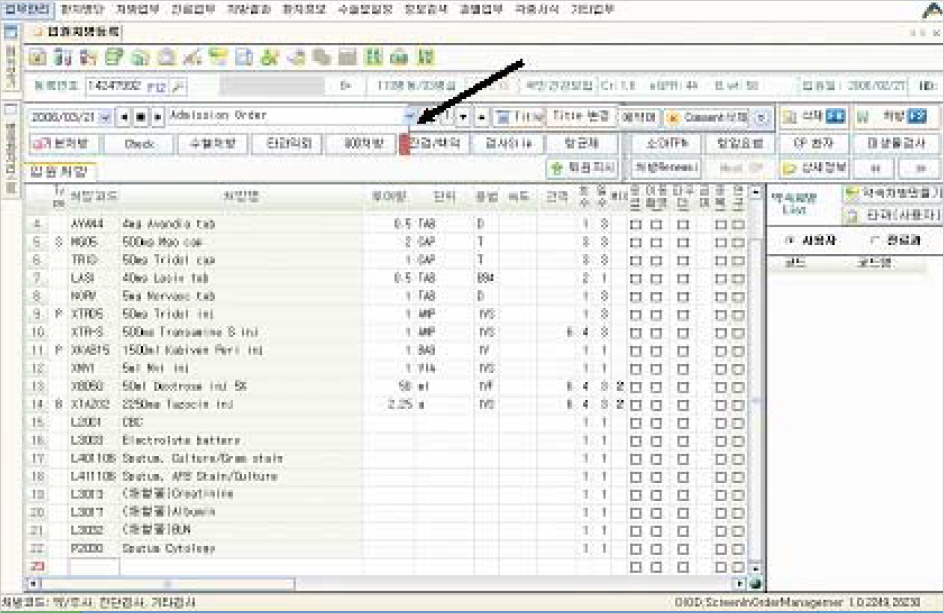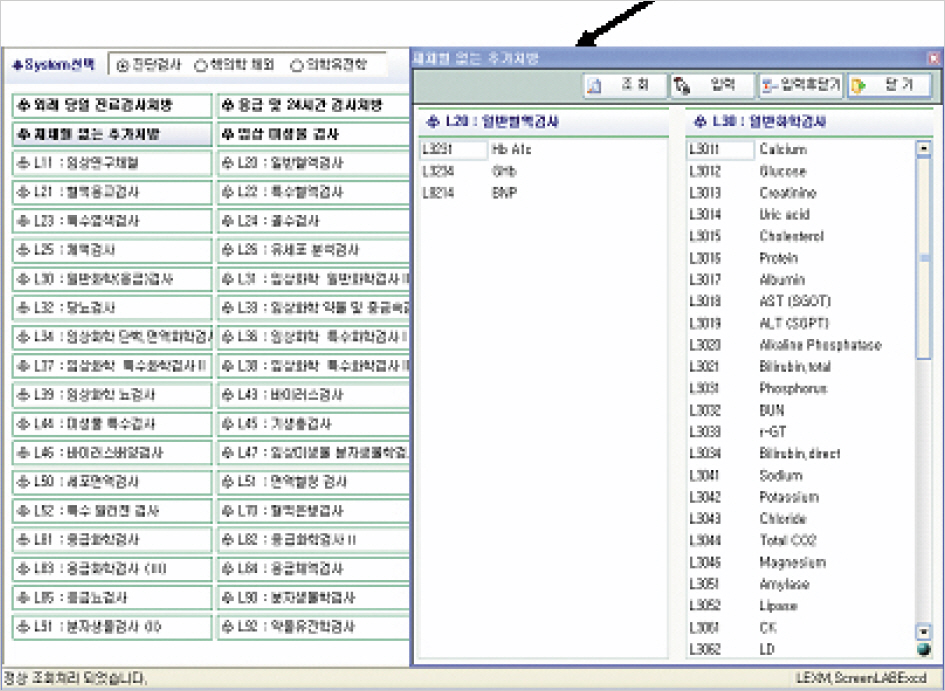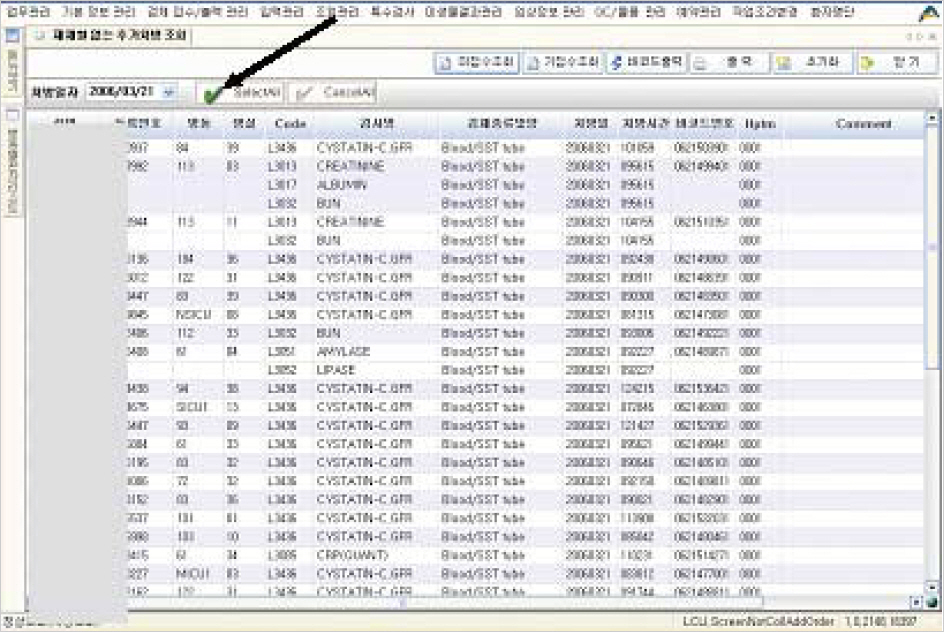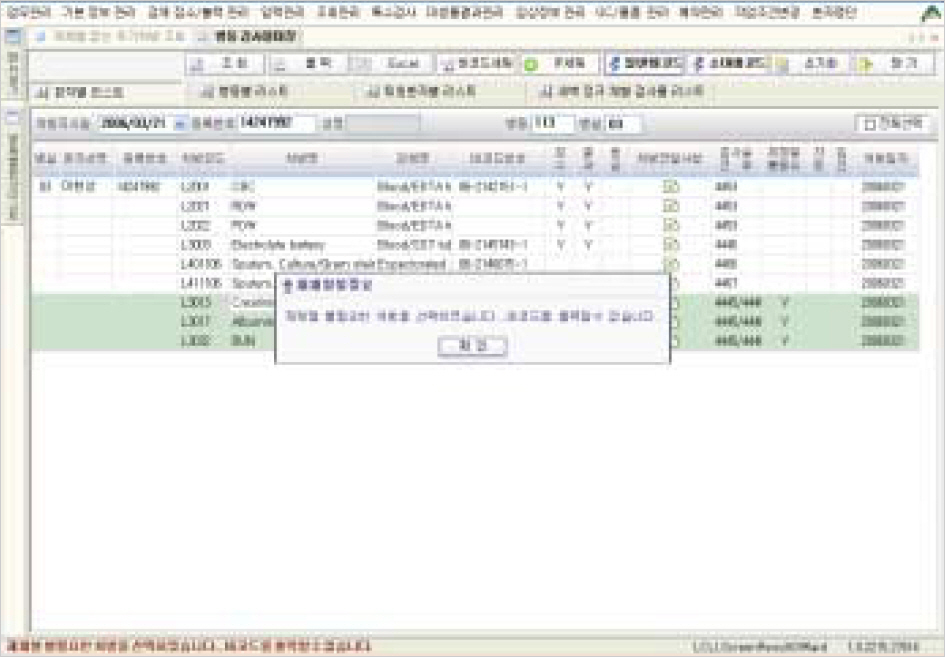Korean J Lab Med.
2006 Oct;26(5):380-384. 10.3343/kjlm.2006.26.5.380.
Development of Secondary Order System for Laboratory Tests without Additional Blood Sampling
- Affiliations
-
- 1Department of Laboratory Medicine, Asan Medical Center and University of Ulsan College of Medicine, Seoul, Korea. wkmin@amc.seoul.kr
- 2Department of Laboratory Medicine, Kangbuk Samsung Hospital and Sungkyunkwan University School of Medicine, Seoul, Korea.
- KMID: 2238864
- DOI: http://doi.org/10.3343/kjlm.2006.26.5.380
Abstract
-
BACKGROUND: Additional tests ordered by doctors after checking abnormal routine test results for inpatients are usually delayed for one day or more, which in turn delays diagnostic and therapeutic procedures and prolongs length of stay (LOS) for the patients. We at Department of Laboratory Medicine, Asan Medical Center (AMC), established a "secondary order system for laboratory tests without additional blood sampling" to improve the conventional reflexive tests.
METHODS
Oracle 8.0 (Oracle Co., Belmont, CA, USA) was used for data base software and Powerbuilder (Powersoft, Burlington, UK) for client development tool. Specimens subjected to "reflexive tests by doctors without additional blood sampling" were SST tubes for routine chemistry and EDTA for routine hematology requested in the morning of additional requests of the laboratory tests.
RESULTS
Programs of registration and request for "reflexive tests by doctors without additional blood sampling" and bar code printing were developed for clinicians to check the routine test results and to order additional tests, if necessary, and for laboratory to perform the requested tests using the same samples used for routine chemistry and hematology tests in the morning. Additionally requested tests were done by finding the SST and EDTA samples, putting newly printed bar code, and processing them as usual. In February 2004, right after introducing reflexive tests by doctors without additional blood sampling, 75 additional requests were made for 50 patients, but they increased gradually up to 1,020 tests for 698 patients in December 2004. In 2005, the monthly average number of tests was 1,035 for 742 patients.
CONCLUSIONS
The reflexive tests by doctors without additional blood sampling developed at AMC helped establish a rapid reporting of test results, which in turn reduced LOS related to laboratory. It also increased patient satisfactory indices by reducing repeated blood sampling and would also contribute to the financial health of the hospital.
MeSH Terms
Figure
Reference
-
References
1. Suh JS, Kwon SW, editors. Laboratory Medicine. 3rd ed.Seoul: Korea Medical Publishing Co.;2001. p. 3–9.
Article2. Park Q. The experience and prospect of consequent order using LIS. Korean J Clin Pathol. 1999; 19(1):95.3. Cha YJ, Chae SL. A successful experiment to use secondary laboratory tests consequently ordered by clinical pathologists. Korean J Clin Pathol. 1999; 19:465–70.4. MacMillan DH, Soderberg BL, Laposata M. Regulations regarding reflexive testing and narrative interpretations in laboratory medicine. Am J Clin Pathol. 2001; 116:S129–32.
Article5. Kratz A, Laposata M. Enhanced clinical consulting-moving toward the core competencies of laboratory professionals. Clin Chim Acta. 2002; 319:117–25.
Article
- Full Text Links
- Actions
-
Cited
- CITED
-
- Close
- Share
- Similar articles
-
- Development of a Secondary Order Program for Pretransfusion Tests to Improve the Work Efficiency of Blood Bank
- Development of Rule-based Expert System for Interpretative Report with Health Screening Tests
- A successful experiment to use secondary laboratory tests consequently ordered by clinical pathologists
- Development of a Transfusion Reaction Reporting System to Improve Communication with Physicians
- LAN Based Hospital Information System (II): Computerization of Blood Collection Room to Reduce Clinical Order Turnaround Time

